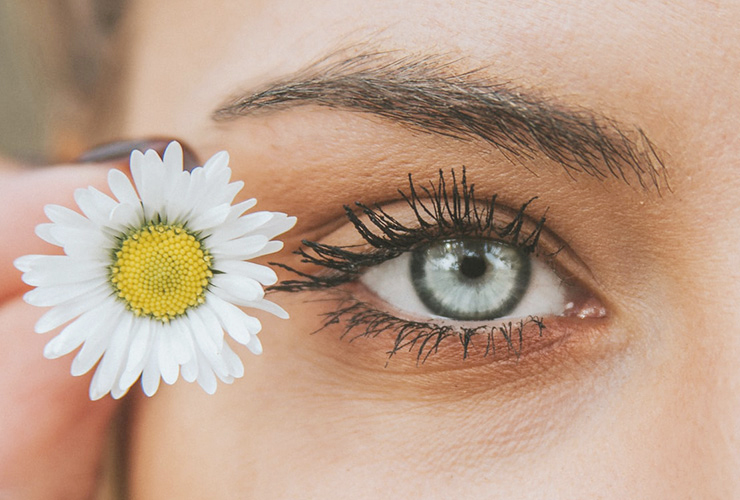
Our vision may be something we take for granted, but eye health is too important to disregard in your self-care regimen; here are some tips for your eyes
—
No matter the time of year, your vision health should maintain a priority. Most people believe that once the long, sunny days have passed you no longer have to worry about your eyes. However, I’m here to tell you that that’s very far from the truth! There’s more than just UV protection to think about when it comes to eye health. There are very specific aspects that the fall and winter seasons bring about that require extra care when it comes to having healthy vision. Now’s the time consider them, so you can stay at your healthiest during the coming months!
Long working hours
Maybe school is back in full swing, maybe the end of the year requires longer hours at work, or maybe you just aren’t itching to the leave the office since the weather isn’t as warm and sunny… Regardless of the reason, people tend to be more productive in the winter, so this may mean working long days or spending hours at the library studying.
Nowadays, long days of work require many consecutive hours spent on your computer, tablet, or phone. With the extra time spent on your electronics, you can buy and wear blue light glasses (Lifeart Glasses, Warby Parker among others) to filter out the harmful light from reaching your eyes.
We’ve all felt what an excessive amount of blue light can cause… symptoms like dry eyes, itchy eyes, blurred vision, and headaches happen because the retinas aren’t able to filter this high-energy light on their own. With blue light glasses, your eyes can feel some relief even when you’re having long, productive days at work or school.
Shorter days
When daylight savings time hits, the shorter days can actually propose issues when it comes to your eye health for a few reasons. As I stated above, electronics can cause discomfort with your eyes. The effects are even worse when you’re looking at your phone or computer in a dark room.
Since you have more awake time when it’s dark out this time of year, these effects can feel even worse than during the long summer days.
Additionally, your sleep schedule can get disturbed with shorter amounts of time with sunlight and your eyes need to sleep to replenish and work at their full potential. Sleeping for at least 7 hours a night can help you avoid eye spasms, popped blood vessels, and dry eyes, so try to keep your regular sleep schedule at night, regardless of what the sun is doing outside.
Most people only worry about UV damage on sunny, summer days. On snowy days in the winter, you still have to be mindful of harmful UV rays. Whether it’s sunny or cloudy, the sun’s rays can break through and reflect off of the white snow, causing UV damage to the eyes. So when the summer ends, don’t pack away those sunglasses; prepare yourself for driving on sunny days, winter jogs, or skiing with UV-blocking sunglasses.
Fruits and veggies
Autumn and winter always get people excited to cook hearty, warm meals. However, it also means the summer markets are closed and it can be harder and more expensive to get fresh produce because most fruits and vegetables are out of season. Fresh fruits and veggies are vital to maintaining your vision health because they are packed with nutrients like Vitamin A, C, lutein, and zeaxanthin which support healthy eyes.
Make it a priority to eat foods like carrots, peppers, and leafy greens that will help your vision.
These foods are great additions to your diet because they are high in the nutrients needed to help maintain eye function, naturally block blue light and help prevent blindness. If you are lucky enough to live near any farms, you can likely pick up seasonal veggies that help support your vision health, like squash and pumpkins that are high in Vitamin A, for a fraction of retail prices!
Cold, dry weather
When the air starts to cool down, it usually gets extremely dry too. Just like our skin, the eyes can suffer from dry air and need extra moisture this time of year. Maintain or increase your water intake to help keep your eyes naturally moisturized. But sometimes just water isn’t enough! If you feel like your eyes are constantly dry and itchy, then try out moisturizing eye drops that can help you produce more tears and keep your eyes feeling comfortable for hours. Eye drops can be especially helpful for people who are particularly sensitive to dry air, work outside, or work at a computer all day long.
The cold weather, long days at work, and changed eating habits can all affect your vision. Most people don’t understand that these common traits of the fall and winter months could also cause issues with your eye health. You don’t want to let the health of this vital part of your body to fall to the wayside for half of the year! Anytime the seasons change, it’s important to tweak your self-care habits to ensure you’re properly caring for yourself during the change in weather. Just like you may revisit your skin care routine or switch up an exercise regimen, you should do the same for your eyes.
You may also enjoy reading Re-Vision | Vision Correction Through Eye Exercise, by Esther Van Der Werf.